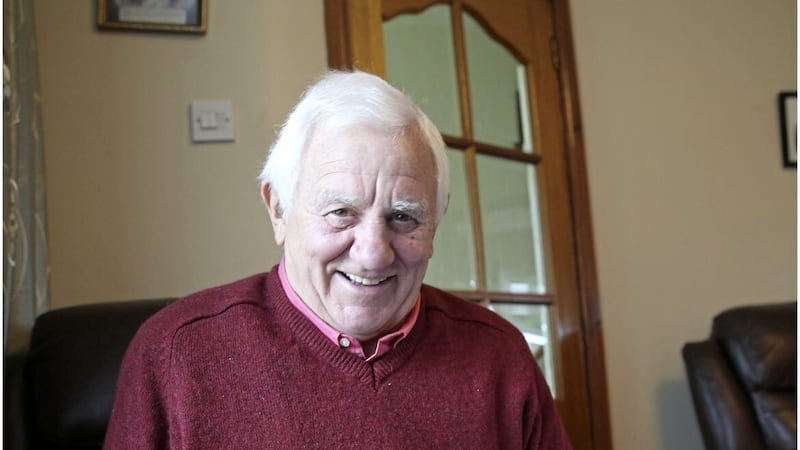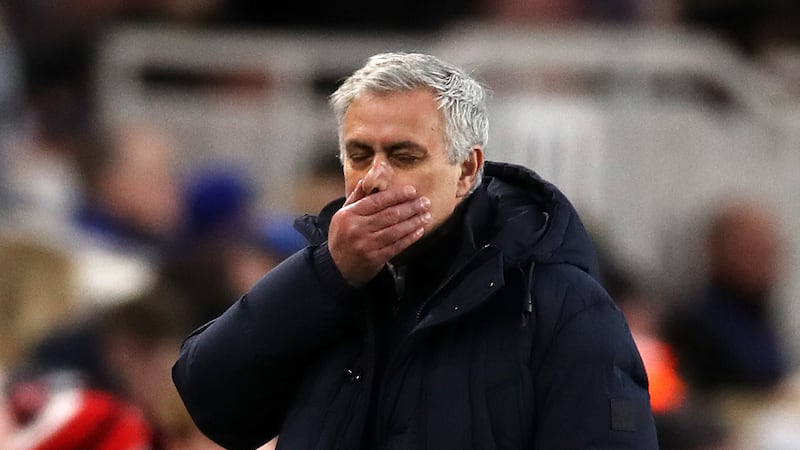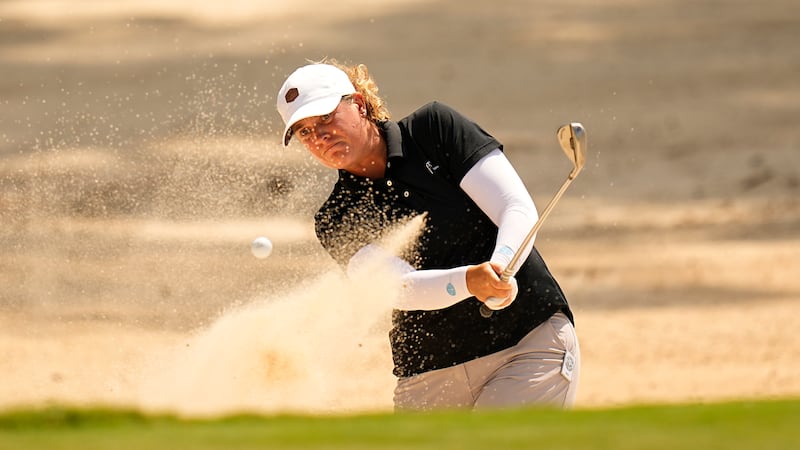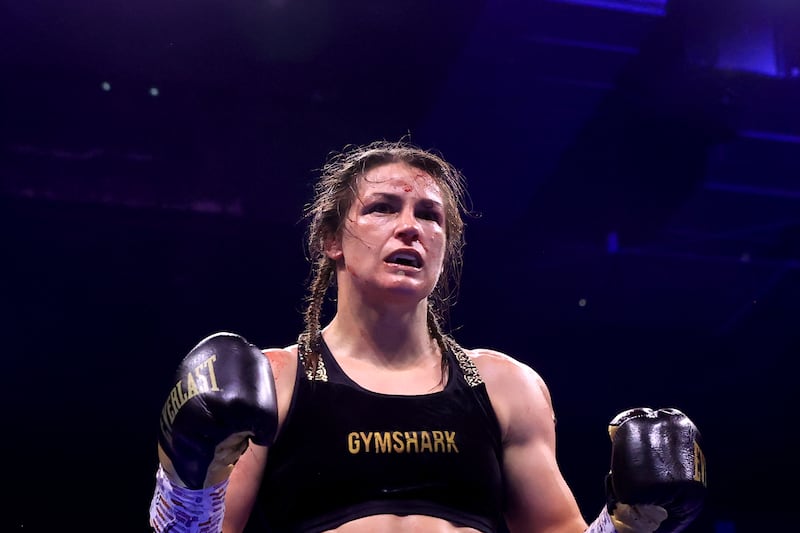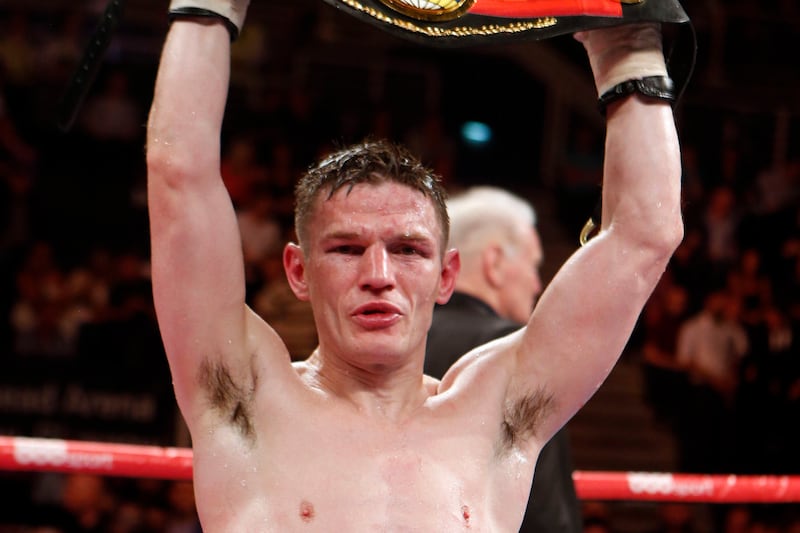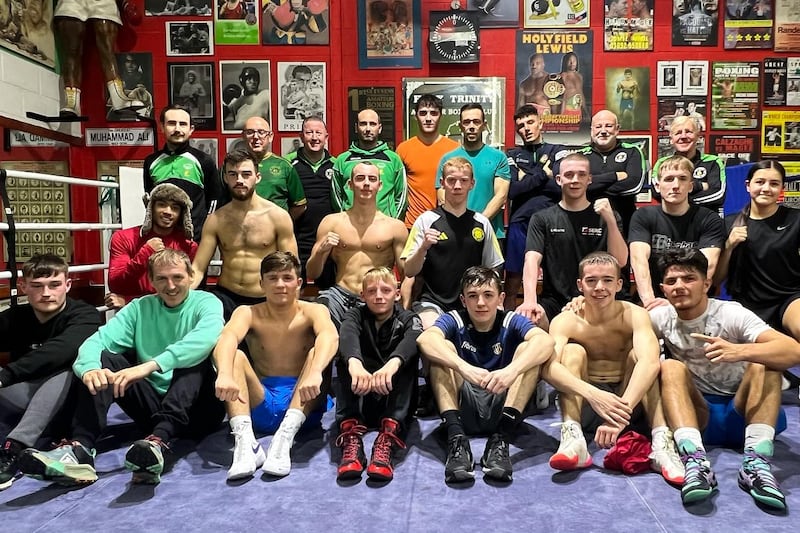BRINGING the world to Belfast is the legacy that will be forever his, but Pat McCrory – who passed away yesterday – gave plenty more to boxing during a lifetime’s dedication to the sport.
Fighter, coach, referee, judge, he played all those parts during a colourful career which saw him spar the likes of John Caldwell and Freddie Gilroy in his pomp, as well as going toe-to-toe with the great Jim McCourt three times.
But it was on the other side of the ropes, as an administrator with the County Antrim Board, Ulster Boxing Council and Irish Amateur Boxing Association, and on the international stage, where the bulk of McCrory’s time was served, proving a man for all seasons in an often unscrupulous business.
A big man in every sense, a charismatic presence, it was in those corridors of power - and through relationships nurtured during decades’ involvement with world governing body AIBA - that McCrory played a key part in bringing the World Championships to his home city in 2001.
With only the Olympics topping the Worlds in boxing terms, it is important to view that achievement in the context it belongs.
Future world champions David Haye, Carl Froch and Guillermo Rigondeaux were among the star-studded crew to grace a newly-opened Odyssey Arena, Belfast’s hosting of the competition a global endorsement of progress made away from the ring too.
“Pat was always ‘Mr Boxing’ to me, but that was the high point,” says nephew Malachy Scott, who won Ulster and Irish titles for Glengormley BC with McCrory in his corner.
“Nowadays we have a nucleus of employees who would be involved in a process like that, to sort out all the detail, whereas in Pat’s day it was all done off their own bat, all volunteers. There was a serious amount of work went into it.”
Michael Hawkins remembers the journey well – it was among the many subjects he and Pat McCrory spoke about during a St Stephen’s Day catch-up at the end of last year.
After being diagnosed with dementia and Parkinson’s, memories from those bygone days were more readily accessed than anything immediate, with a familiar face or a moment in time capable of instantly unlocking the vault.
“He was in great form – ‘Mick this, Mick that’ - it was absolutely great to see him and talk to him about all those times,” says the Holy Trinity stalwart.
“I’d known Pat from the early ’60s, at the Holy Family in Patrickville when I was there. Pat’s a few years older than me, but I always remember him skipping in the ring.
“Different people would be in and out, there would always be a lot of banter and he’d be right in the middle of it. That was the sort of him.”
The pair grew close through the years, with Hawkins a coach at many international tournaments McCrory attended as either team manager or R&J, including the 1988 Olympic Games in Seoul and several Commonwealth Games.
As an international class referee, and later secretary of AIBA’s referees and judges’ commission, McCrory also played a part at Olympics in Barcelona, Atlanta, Sydney and Beijing, travelling to all corners of the globe when called upon.
The 2001 World Championships, though, was a particularly proud moment – a labour of love from beginning to end.
“Pat was always a great worker,” recalls Hawkins, “no matter what needed done, he just got on with it. He was president of the Ulster Council, Jack Monaghan was treasurer, and they were a great partnership, good fun to be around.
“Pat was a people person, and in 1995 the Sports Council asked him what he could do in regards to getting a major championship to Belfast, so that shows how long it was in the works.
“That year Pat went to the World Championships in Berlin, I was there as a coach, and he met with [then AIBA general secretary] Karl-Heinz Wehr – everything really went from there.
“Once the ball was rolling, Pat was very much on the ground, making it all happen. The respect that he had… we’re talking about people who were friends to him, relationships built up over a long period of time.
“The Worlds were massive for Belfast, and it was great for the boxing community to be part of it – whether it was meeting and greeting each country coming in or mopping out the ring after each round, everybody had a job to do.
“Pat made sure everybody had a part to play.”
McCrory also played a key role as the famous Cuban team used Belfast as their base in the lead-up to the 2012 Olympic Games in London, with talks held at the 2011 World Championships in Baku helping pave the way for their arrival.
In the end, seven countries would set up camp in the north ahead of London, but it was the Cubans who brought out the crowds no matter where they went - with packed halls at sparring sessions and public workouts in Queen’s University, Holy Trinity, Monkstown, Banbridge and McCrory’s own Glengormley club thrilling young and old alike.
It is those fond memories, and the familiar twinkle that never seemed to leave his eye, which will always spring to mind to so many when Pat McCrory’s name is mentioned.
News of Pat’s passing brings great sadness, especially to his nearest and dearest, but there is pride too at the contribution made and the friendships forged, all in the name of the game he loved.
“One of the great things about Pat was, even if you did have cross words or fall out, bang, the next day he’d be on the phone,” recalls Hawkins.
“He didn’t hold a grudge, he wanted to get things done for the benefit of boxing, and to me that was one of his biggest qualities. You’d fall out then fall back in again – ‘right, let’s take care of the job’.
“Boxing was his life, and he loved it - gave it everything. He wouldn’t have had it any other way.”
